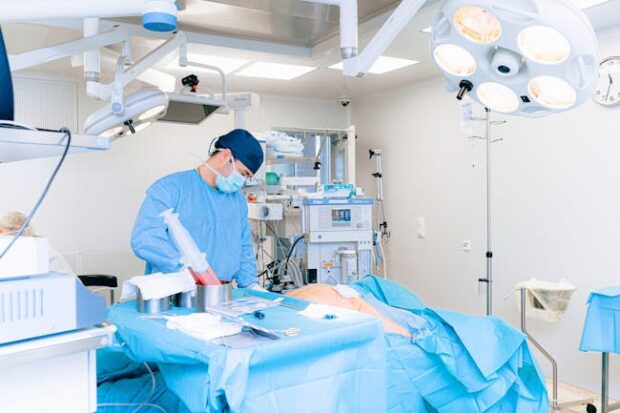Cancer AI detects symptoms missed by doctors
Medical professionals often handle numerous things when they treat patients. Dr. Gerald Lip, a clinical director of breast screening in the northeast of Scotland, admits he experiences such issues.
He told the BBC “disruptions” can sometimes cause him to miss someone’s symptoms. Consequently, he’s glad for Mia’s help.
READ: Teen cured of brain cancer is world’s first
Mia is an artificial intelligence that detects cancer symptoms that physicians tend to miss. Microsoft reports it can find “12% more cancers than in routine practice.”
How effective is this cancer AI?
An #AI tool called Mia tested by the NHS analysed the mammograms of over 10,000 women and then successfully identified tiny signs of breast cancer in 11 women which had been missed by human doctors. https://t.co/54FImbzzJP
— Berci Meskó, MD, PhD (@Berci) March 22, 2024
Mia could help thousands of women across the United Kingdom if the National Health Service (NHS) uses it.
This integration may also reduce the number of women recalled unnecessarily for further assessment and decreases workloads by 30%.
Mia helped detect high-grade cancers earlier, letting them administer sooner. As a result, they have a higher chance of success.
Microsoft shares the story of Barbara, one of the first women in the UK who had help from the cancer AI.
“My cancer was so small that the doctors said it would not have been picked up by the human eye,” she recalled.
Consequently, she had a better prognosis than her mother who needed more invasive treatment for her breast cancer. “It’s a lifesaver; it’s a life-changer,” Barbara said.
Dr. Lip elaborated on the cancer AI’s effectiveness. “If you pick up cancer under 15mm, most women now will have a 95% survival rate,” he stated.
“Not only did Mia help us find more cancers, most of which were invasive and high-grade, but we also modeled that it could reduce the time it takes to notify women from 14 days to just 3 days, reducing significant stress and anxiety for our patients.”
READ: How to find a lost smartphone
BBC said breast cancer doctors look at roughly 5,000 breast scans per year on average and view 100 per session.
That is why Dr. Lip says, “There is an element of fatigue. You get disruptions, someone’s coming in, someone’s chatting in the background.”
“There are lots of things that can probably throw you off your regular routine as well. And in those days when you have been distracted, you go, ‘How on earth did I miss that?’ It does happen,” he added.
What are the cancer AI’s limits?

Dr. Lip believes the technology could give him more time for his patients. “I see Mia as a friend and an augmentation to my practice,” he told BBC.
However, this cancer AI tool has flaws. It cannot access patient history, so it may flag cysts that previous scans identified.
Health regulations prevent its machine learning feature, meaning it can’t learn from its sessions. Consequently, experts must update it to undergo new reviews.
The initial tests occurred at NHS Grampian, and their results haven’t undergone peer review. Nevertheless, the Royal College of Radiologists believes in the cancer AI’s potential.
“These results are encouraging and help to highlight the exciting potential AI presents for diagnostics,” said Dr. Katharine Halliday, the President of the Royal College of Radiologists.
“There is no question that real-life clinical radiologists are essential and irreplaceable, but a clinical radiologist using insights from validated AI tools will increasingly be a formidable force in patient care.”